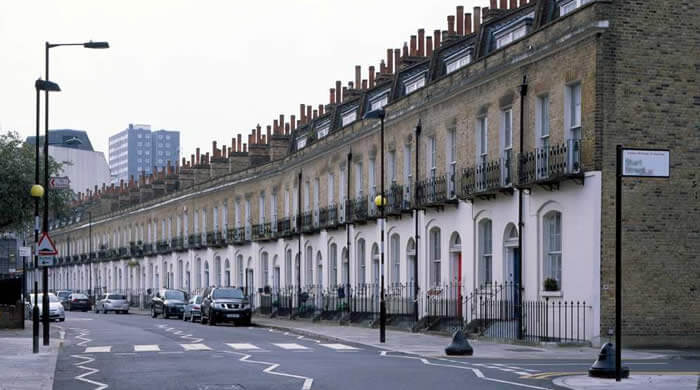The allure of homeownership is strong, and for many, especially first-time buyers, ex-council homes, often referred to as "right-to-buy" properties, can appear as an attractive and affordable option. However, navigating the world of ex-council houses requires careful consideration, as there are both potential benefits and drawbacks to explore.
The Allure of Affordability:
The primary advantage of ex-council properties is their lower price tag compared to similar properties in the private market. This affordability can be a game-changer for those struggling to enter the housing market, offering a realistic path towards homeownership. Additionally, some ex-council properties might be located in established neighbourhoods with good access to amenities, schools, and public transport.
Beyond the Price Tag:
While affordability is undeniably appealing, it's essential to look beyond the initial price tag when considering an ex-council property. Here's a deeper dive into the potential challenges you might encounter:
1. Potential for Higher Maintenance Costs:
Ex-council properties are often older than their privately owned counterparts and might require more frequent maintenance and repairs. This can translate to unforeseen expenses down the line, impacting your budget. Be prepared for potential issues like:
- Outdated electrical wiring or plumbing systems: These might require upgrades to meet current safety standards and improve efficiency.
- Deterioration due to age: Older buildings are more susceptible to wear and tear, leading to issues like roof leaks, dampness, or faulty insulation.
- Limited or outdated built-in features: Kitchens and bathrooms in ex-council properties might be basic or outdated, requiring renovations if you desire modern amenities.
Factor in potential renovation costs and ongoing maintenance needs when calculating the overall cost of ownership. While the initial purchase price might be lower, remember that additional expenses might arise in the future.
2. Mortgage Availability:
Obtaining a mortgage for an ex-council property can be more challenging compared to private properties. This is due to several factors:
- Lender restrictions: Not all mortgage lenders offer loans for ex-council properties, particularly for flats or properties in high-rise buildings. These properties might be deemed higher risk by some lenders due to potential issues like shorter lease terms or specific building regulations.
- Valuation concerns: Ex-council properties might be valued lower than similar private properties in the same area. This can impact the loan-to-value (LTV) ratio, potentially requiring a larger deposit from you.
- Leasehold complexities: If the property is leasehold, the lender might have additional restrictions or require specific lease terms (e.g., minimum lease length) before approving a mortgage.
Thoroughly research lenders specializing in ex-council mortgages and compare their interest rates and loan terms carefully. Be prepared to potentially offer a larger deposit and manage the possibility of a smaller loan amount compared to a private property purchase.
3. Leasehold vs. Freehold Ownership:
Understanding the type of ownership associated with an ex-council property is crucial. While some ex-council properties are freehold, meaning you own the entire building and land, many are leasehold. This means you own the property for a specific lease term, typically ranging from 90 to 125 years. There are several implications to consider with leasehold ownership:
- Ground rent: You'll typically need to pay ground rent to the freeholder (often the local council) throughout the lease term. This annual fee can vary depending on the property and can increase periodically.
- Lease extensions: If you plan to own the property long-term, you might need to extend the lease at some point. This process can be complex and involve significant costs, impacting your long-term financial planning.
- Restrictions on alterations: Leasehold agreements often come with restrictions on what alterations or renovations you can make to the property without the freeholder's consent.
Carefully review the leasehold agreement and understand the associated costs and limitations before committing to an ex-council property purchase.
4. Resale Considerations:
While ex-council properties can be a good option for living in, selling them might be more challenging compared to private properties. Here are some factors to consider:
- Lower market value: Ex-council properties often have a lower market value compared to similar-sized private properties in the same area. This can limit the potential pool of buyers and potentially impact the resale profit you might earn.
- Stigma perception: Unfortunately, a stigma sometimes persists around ex-council housing, deterring some buyers. This can make it harder to find interested buyers and potentially prolong the selling process.
Be realistic about the potential challenges of selling an ex-council property in the future. It might be a good long-term investment for personal residence, but consider the potential resale limitations if you anticipate moving in the near future.
By carefully considering these factors, you can make an informed decision about whether an ex-council property aligns with your financial goals and long-term plans. Remember, while affordability plays a crucial role, it shouldn't overshadow potential drawbacks that might impact your long-term well-being and financial security.
Making an Informed Decision:
The decision to buy an ex-council property requires careful consideration and preparation. Here are some crucial steps to take before taking the plunge:
1. Conduct a Comprehensive Research Mission:
- Dive deep into the property itself: Utilize online resources like land registries and property portals to gather detailed information about the specific property you're interested in. Look for past selling prices, historical records, and any planning applications that might affect the property or the surrounding area.
- Become an expert on the neighbourhood: Research the surrounding area thoroughly. Explore factors like crime rates, local amenities, schools, public transport links, and potential development plans. This will provide a comprehensive understanding of the location's liveability and potential for future growth.
- Connect with the local community: Talk to current residents in the area, particularly those living in ex-council properties. They can offer valuable insights about the neighbourhood's atmosphere, potential challenges, and the overall experience of living in ex-council housing.
2. Seek the Guidance of Qualified Professionals:
- Invest in a professional survey: A RICS qualified surveyor can conduct a thorough inspection of the property, identifying any structural issues, damp problems, or potential repair needs. This comprehensive assessment helps you understand the property's true condition and avoid unexpected expenses down the line.
- Empower yourself with legal expertise: Consult a solicitor specializing in property law. They can explain the legal aspects of the purchase, including the leasehold agreement (if applicable), potential restrictions, and any outstanding charges on the property. Their guidance ensures you understand your rights and obligations as a homeowner.
3. Broaden Your Horizons: Explore All Options:
While ex-council properties might seem like an attractive option, it's crucial to avoid tunnel vision. Actively research other properties available within your budget in the desired area. Compare features, locations, and overall value propositions of various options, including private sale properties, new builds, or even shared ownership schemes. This comprehensive evaluation allows you to make an informed decision based on a wider range of possibilities.
4. Make an Informed and Confident Choice:
By conducting thorough research, seeking professional guidance, and exploring various options, you empower yourself to make a well-informed and confident choice. Remember, while affordability plays a significant role, prioritize factors like long-term value, the property's condition, and the suitability of the location for your lifestyle and future plans. By following these crucial steps, you can navigate the world of ex-council properties with clarity and confidence, ultimately increasing your chances of finding the perfect home that aligns with your aspirations and financial security.
Ultimately, the decision to buy an ex-council property is a personal one. By understanding the potential benefits and drawbacks, conducting thorough research, and seeking professional advice, you can make an informed choice that aligns with your financial situation and long-term goals. Remember, affordability is crucial, but it shouldn't come at the cost of compromising the quality, location, or long-term value of your dream home.
Added: March 5, 2024 15:57:12





